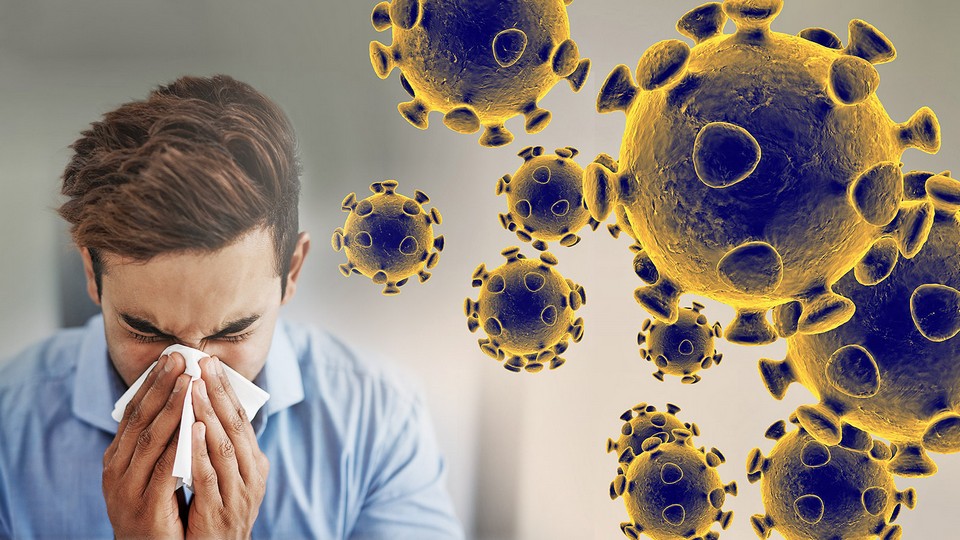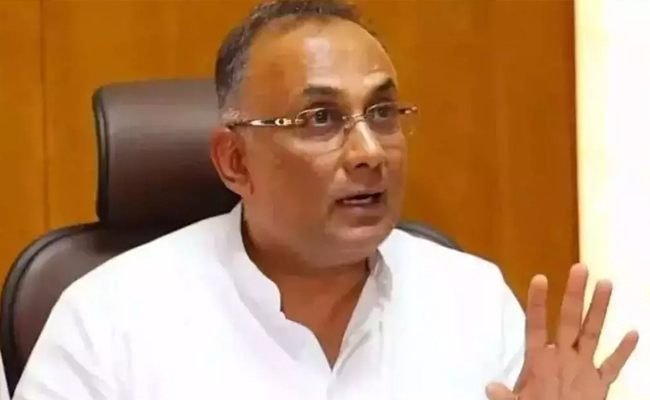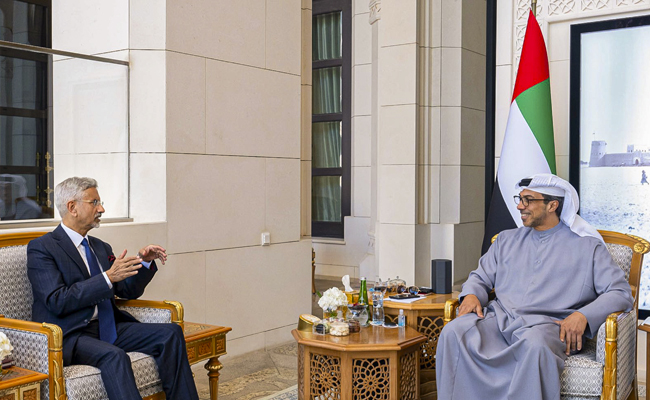New Delhi: Four of five people who have tested positive for coronavirus will get better on their own and there is no need for Indians to panic about the viral outbreak yet, says a leading Indian researcher and scientist.
Testing for the disease should also be done only when recommended, said Gagandeep Kang as the number of coronavirus cases in India rose to 30, including 16 Italian tourists as well as three patients in Kerala who have recovered.
"Please let public health authorities know about exposure to known infected persons or travel to areas where infections are known to be prevalent," the Christian Medical College professor, who last year became the first Indian woman to be elected fellow of the Royal Society in London, told.
Noting that all treatments are not curative but only supportive at the moment, she said four of five people will get better on their own and may need nothing more than drugs like paracetamol for fever and cough.
"The fifth person may need to see a doctor or be hospitalised. If you have breathing difficulty, you should see a doctor as soon as possible," said Kang, also vice-chair of the Norway-based International Coalition for Epidemic Preparedness Innovations (CEPI) that aims to derail epidemics by speeding up the development of vaccines.
"For everyone, there is no need to worry too much or panic. We are exposed to viruses every day. Make sure you wash your hands well, wipe down or use disinfectants on surfaces. Avoid touching your face," she said.
The coronavirus (CoV) is a large family of viruses that causes illnesses ranging from the common cold to acute respiratory syndromes. COVID-19 that has killed over 3,000 people worldwide and infected more than 90,000 is a novel strain not seen before.
Over 53,000 people have recovered from the infection globally, according to an interactive map compiled by the Johns Hopkins Center for Systems Science and Engineering.
The World Health Organisation has already declared the outbreak a "global emergency", stopping short of terming it a pandemic.
Nose and throat swabs are used as specimens for detecting the coronavirus.
The test takes at least 12-24 hours for the confirmation. It a gene-based assay called polymerase chain reaction (PCR) and a more sensitive form called reverse-transcription polymerase chain reaction (RTPCR).
According to Kang, known for her inter-disciplinary research studying the transmission, development and prevention of intestinal infections, there are still more cases of flu in India and around the world than of the COVID-19.
"This is important to know and understand. It looks like this infection causes diseases that are more severe than the flu, but less severe than Severe acute respiratory syndrome (SARS)," she said.
SARS is a viral respiratory illness caused by a coronavirus called SARS-associated coronavirus (SARS-CoV).
At the moment, it seems that COVID-19, unlike the flu, does not cause severe disease in children.
"It does, however, cause more severe disease in the elderly, and in people who have cardiovascular disease, hypertension and diabetes," said Kang, who was awarded the prestigious Infosys Prize in Life Sciences in 2016.
She said many drugs against the viral infection are being tested, including vaccines which may be ready by next year.
"There are currently no vaccines, but there are many in development. If all goes well with vaccine development efforts we might have a vaccine next year. But vaccine candidates do not always succeed," she said.
Kang emphasised that people must inform public health authorities if they suspect they have been exposed to the virus.
She also advised people to work from home if they have a fever and a cough.
"Stay six-10 feet away from people who are coughing or sneezing," she said.
"Remember that with most respiratory viruses, most people exposed and sick with relatively minor symptoms recover and have some protection against reinfection," she said.
Kang added that with the novel coronavirus, getting infected does not mean that every infected person will be severely ill.
The scientist is also executive director of the Translational Health Science and Technology Institute (THSTI), an autonomous institution of the Department of Biotechnology.
Let the Truth be known. If you read VB and like VB, please be a VB Supporter and Help us deliver the Truth to one and all.
New Delhi: A bill to set up a 13-member body to regulate institutions of higher education was introduced in the Lok Sabha on Monday.
Union Education Minister Dharmendra Pradhan introduced the Viksit Bharat Shiksha Adhishthan Bill, which seeks to establish an overarching higher education commission along with three councils for regulation, accreditation, and ensuring academic standards for universities and higher education institutions in India.
Meanwhile, the move drew strong opposition, with members warning that it could weaken institutional autonomy and result in excessive centralisation of higher education in India.
The Viksit Bharat Shiksha Adhishthan Bill, 2025, earlier known as the Higher Education Council of India (HECI) Bill, has been introduced in line with the National Education Policy (NEP) 2020.
The proposed legislation seeks to merge three existing regulatory bodies, the University Grants Commission (UGC), the All India Council for Technical Education (AICTE), and the National Council for Teacher Education (NCTE), into a single unified body called the Viksit Bharat Shiksha Adhishthan.
At present, the UGC regulates non-technical higher education institutions, the AICTE oversees technical education, and the NCTE governs teacher education in India.
Under the proposed framework, the new commission will function through three separate councils responsible for regulation, accreditation, and the maintenance of academic standards across universities and higher education institutions in the country.
According to the Bill, the present challenges faced by higher educational institutions due to the multiplicity of regulators having non-harmonised regulatory approval protocols will be done away with.
The higher education commission, which will be headed by a chairperson appointed by the President of India, will cover all central universities and colleges under it, institutes of national importance functioning under the administrative purview of the Ministry of Education, including IITs, NITs, IISc, IISERs, IIMs, and IIITs.
At present, IITs and IIMs are not regulated by the University Grants Commission (UGC).
Government to refer bill to JPC; Oppn slams it
The government has expressed its willingness to refer it to a joint committee after several members of the Lok Sabha expressed strong opposition to the Bill, stating that they were not given time to study its provisions.
Responding to the opposition, Parliamentary Affairs Minister Kiren Rijiju said the government intends to refer the Bill to a Joint Parliamentary Committee (JPC) for detailed examination.
Congress Lok Sabha MP Manish Tewari warned that the Bill could result in “excessive centralisation” of higher education. He argued that the proposed law violates the constitutional division of legislative powers between the Union and the states.
According to him, the Bill goes beyond setting academic standards and intrudes into areas such as administration, affiliation, and the establishment and closure of university campuses. These matters, he said, fall under Entry 25 of the Concurrent List and Entry 32 of the State List, which cover the incorporation and regulation of state universities.
Tewari further stated that the Bill suffers from “excessive delegation of legislative power” to the proposed commission. He pointed out that crucial aspects such as accreditation frameworks, degree-granting powers, penalties, institutional autonomy, and even the supersession of institutions are left to be decided through rules, regulations, and executive directions. He argued that this amounts to a violation of established constitutional principles governing delegated legislation.
Under the Bill, the regulatory council will have the power to impose heavy penalties on higher education institutions for violating provisions of the Act or related rules. Penalties range from ₹10 lakh to ₹75 lakh for repeated violations, while establishing an institution without approval from the commission or the state government could attract a fine of up to ₹2 crore.
Concerns were also raised by members from southern states over the Hindi nomenclature of the Bill. N.K. Premachandran, an MP from the Revolutionary Socialist Party representing Kollam in Kerala, said even the name of the Bill was difficult to pronounce.
He pointed out that under Article 348 of the Constitution, the text of any Bill introduced in Parliament must be in English unless Parliament decides otherwise.
DMK MP T.M. Selvaganapathy also criticised the government for naming laws and schemes only in Hindi. He said the Constitution clearly mandates that the nomenclature of a Bill should be in English so that citizens across the country can understand its intent.
Congress MP S. Jothimani from Tamil Nadu’s Karur constituency described the Bill as another attempt to impose Hindi and termed it “an attack on federalism.”



_vb_22.jpeg)

